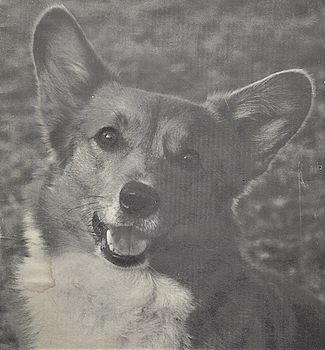Why a Corgi ?

For me and my family a dog should have the following qualities:
Small size (my wish); must be a "proper" dog (my partner's wish); preferably immortal (our 8- year-old son's wish after we recently had to put down our previous dog of a different breed.
The breed that we found to comply best with all our wishes was the Welsh Corgi Pembroke. At that time, there were no Cardigans in Sweden, but a tailless dog was to our minds preferable because we had just witnessed a dog having his tail chopped off in a car door!
And what are the corgi's other qualities? The size is very handy, but a corgi is by no means a lapdog. He is far too independent to be treated as such. His background as a working dog for centuries gives him self-reliance and alertness. His taking pride, together with his handler, in carrying out a job which requires both cleverness and endurance must never be questioned or broken.
The notion that the corgi is snappy is no longer valid thanks to the English imports in recent years of corgis with lovely, friendly temperaments which they passed on to their progeny. Whoever cannot handle his corgi nowadays should first scrutinize his own skill when it comes to handling a dog. The corgi is a fantastic guard dog and will thus be a great support for someone living in a residence or a remote location.
The corgi is lively and active and those interested in obedience or working jobs will have a companion with an amazing response. In Sweden, quite a few corgi owners are very interested in herding and are afraid that the herding instinct will be bred out, but I would claim that this is not the case.
The fact is that there simply are more or less motivated corgis and according to Mrs Thelma Gray, in her article in the Australian National Dog, progeny of corgis who for generations never had seen a cow, when joining farmer families, showed obvious talent in quickly learning to smartly round up the cows and lead them from the pasture.
However, what we now are worried about are quite a few corgis with bad movement. This was not a problem with the corgis in the early days. It was a matter of course that you would take care in only breeding agile dogs with stamina. We are fortunate enough to have a breed with no special health problems* and a corgi reaching an age of 14/15 years was previously quite normal, but I guess we are all somehow victims of our environment and so are the dogs.
Gunvor Lundberg
SSD bladet, nr. 3/1980
Translated from Swedish.
*) Today, the major problem is DM (Degenerative Myelophathy)
25.04.2022
